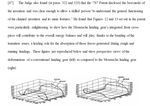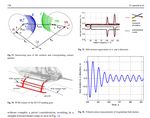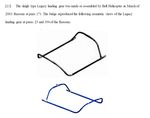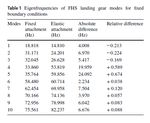Using Patents as examples of Technological Advancement - Bell vs. Eurocopter Presented by Ben Mak, BASc., LLB - SR&ED Stakeholder ...
←
→
Page content transcription
If your browser does not render page correctly, please read the page content below
Using Patents as examples of
Technological Advancement
Bell vs. Eurocopter
Presented by Ben Mak, BASc., LLBInternational Definition of
an R&D project
• “For a … project to be classified as R&D,
its completion must be dependent on a
scientific &/or technological advance, the
aim of the project must be the systematic
resolution of a scientific and/or
technological uncertainty.”
• Source: Frascati Manual 2002, paragraph 135Realm of Experimental Development
The RDBASE.NET R&D
Consortium © 2014
Maximum Efficent Use of Knowledge Corporation
Simplifying the SR&ED ME + U = KnowledgeSR&ED - ITA 248(1) Definition “Scientific research and experimental development means systematic investigation … in a field of science or technology by experiment or analysis that is: • (a) basic research, for advancement of scientific knowledge without specific practical application in view, • (b) applied research, for advancement of scientific knowledge with specific practical application in view, or • (c) experimental development, for the purpose of achieving technological advancement for the purpose of creating new, or improving existing, materials, devices, products or processes, including incremental improvements thereto
CRA guidelines –
Defining “Technology Base”
Technology base or level … includes:
• technical knowledge ...of its personnel;
• current products, techniques, methodologies (trade secrets &
intellectual property).
• publicly available sources … publications, journals, textbooks,
internet-based information & expertise ... through employees
or contractors.
The technology base will vary from company to company even
though the knowledge available publicly remains the same.
Source: CRA SR&ED Glossary Dec. 19, 2012 SR&ED policy papersUsing patent cases to illustrate TA Benefits • Similar focus on Technological Advancement • Rules similar internationally • Often deeper analysis vs. tax court judgments • Examples for SR&ED claimants self assess • Encourage integration with SR&ED process
Landmark decision
defining Technological Advancement
2012 FC 113 - Eurocopter v. Bell Helicopter
Patents: Sound Prediction
Patents: Punitive damages
7Key Criteria Summary
2101 - Bell vs. Eurocopter - Patent Defense analysis
BENCHMARKS ACTIVITIES BY YEAR
Internet searches: 1 Articles 2021
Competitive products or processes: 4 products '1-1 '1-2 '1-3 1-4 '2-1
Similar prior in-house technologies: 1 products / processes Legacy Experimental Prior art Determining $ Production
Landing gear - exception defence damages landing gear does
infringes patent defence NOT infringe
patent
OBJECTIVES RESULTS
Eliminate ground resonance instability: 1 1=yes / 0= no 1 1
load distribution: %
UNCERTAINTIES & KEY VARIABLES CONCLUSIONS
1 - Defining prior art vs. Eurocopter patent
define transition zones Y
double curvature of transition zones Y
integrated front cross piece Y
moustache or sleigh shape Y
2 - Advancements in Bell vs. Eurocopter patent?
attach cross piece with saddle joint - stiffness? Y
eliminate double curvature Y
resulting pitch & roll frequencies Y
METHODS
Analysis
Trials
Prototypes 21 30
COSTS
Hours 3776 4500
Materials $ 100000 150000
Subcontractor $Eurocopter v. Bell Helicopter
2012 FC 113, Martineau J.
v.
9Eurocopter v. Bell Helicopter
2012 FC 113, Martineau J.
• Overview
“Classic patent infringement/invalidity scenario”
Eurocopter claims infringement of Canadian Patent No.
2,207,787 (the ’787 patent), directed to skid-type “moustache”
landing gear
(Patent written in French – English translation used by Court)
10Eurocopter v. Bell Helicopter
2012 FC 113, Martineau J.
• Overview
Bell sued over two landing gear designs: “Legacy” and
“Production” gear
“Production” landing gear “Legacy” landing gear
Claims 1, 2, 3, 4, 5, 7, 9, 10 and 15 asserted for infringement
All 16 claims challenged on validity
All 16 claims are device claims
11Eurocopter v. Bell Helicopter
2012 FC 113, Martineau J.
• Basic Facts
The patent sets out a number of advantages of the “moustache”
design over a conventional skid-style gear having two skid ends
protruding in front:
(a) Elevated acceleration factors upon landing (load factors);
(b) Difficult frequency adaptation with respect to ground
resonance; and
(c) High landing gear weight.
12Eurocopter v. Bell Helicopter
2012 FC 113, Martineau J.
• Basic Facts
Claim 15 covers an embodiment wherein the front “moustache”
cross-piece is inclined forward from where the skids touch the
ground
Claim 16 covers an embodiment wherein it is inclined backward
Claims 1-14 do not specify direction of inclination
Eurocopter had only tested and demonstrated the stated
advantages for a version of the moustache landing gear
corresponding to Claim 15
Patent had figures showing both variants (e.g. Fig. 1 & 11e)
13Eurocopter v. Bell Helicopter
2012 FC 113, Martineau J.
• Issue #1: Sound Prediction
Court holds that these three stated advantages constitute a
“promise” of specific utility (following Hughes J. in Mylan
Pharmaceuticals (2011))
Court then proceeds to ask whether, at the filing date, the
patentee had sufficient information upon which to base the
promise
Expert evidence suggests that the backwards inclination might
have disadvantages (e.g. it might be more susceptible to buckling)
In the absence of evidence to support the backward-inclined
embodiment meeting the promise, the Court finds a lack of
demonstrated utility in Claim 16 as of the filing date
14Eurocopter v. Bell Helicopter
2012 FC 113, Martineau J.
• Issue #1: Sound Prediction
Court goes on to invalidate Claims 1-14 on the same grounds
because they encompass the backward-inclined embodiment
shown in Fig. 11e of the patent
• The test for sound prediction / overbreadth
A claim may be invalidated for lack of demonstrated utility or
overbreadth if:
the patentee cannot soundly predict as of the filing date that
all embodiments (or maybe just all described embodiments?)
encompassed by the claim
demonstrate all of the stated advantages (or maybe just some?)
this is true even for patents having only device claims
15Eurocopter v. Bell Helicopter
2012 FC 113, Martineau J.
• Issue #2: Punitive Damages
Bell held to infringe claim 15 with both designs
Court doesn’t believe Bell’s evidence that they had no knowledge
of the patent
Bell trained its employees on a leased Eurocopter EC120 vehicle having
the new landing gear design
These employees proposed the Bell “Legacy” design shortly thereafter:
it’s a “slavish copy” of the Eurocopter design
Court finds that Bell knew the new design would infringe the patent but
ignored these concerns when raised
Bell’s sophistication and bad faith justify punitive damages
Quantum of punitive damages to be determined later (bifurcated
proceedings)
16Bell vs. Eurocopter Landing gear layouts
Eurocopter “Moustache” landing gear
Eurocopter “Moustache” landing gear Claim 1 (translated) 1. Helicopter landing gear, comprising two skids each having a longitudinal ground support surface and connected to a front cross piece and a rear cross piece which are themselves attached to the structure of the helicopter by connecting devices, the rear cross piece being attached by the ends of its descending branches to the rear part of said longitudinal support surfaces, characterized in that each of said skids has at the front an inclined transition zone with double curvature orienting itself transversely in relation to said longitudinal ground support surfaces, above the plane of the latter, the two transition zones together constituting, in this way, an integrated front cross piece, offset in relation to the front delimitation of the plane of contact of the longitudinal support surfaces of the skids on the ground.
Conventional design
Moustache design specifics [27] The Judge also concluded the “double curvature” of transition zone is obtained first by - a “fairly large” bend when the skid’s cross piece bends upwards (C1 figure), then a - second bend where the cross piece extends horizontally to meet the fuselage (C2 of figures) - as in figures 4a, 4b and 10 of the ‘787 Patent
Moustache design specifics
Moustache vs. Conventional
Moustache vs. Conventional
• [48] Judge .. particularly satisfied
• in light of the actual testing carried out,
• inventors had demonstrated .. claim 15 in which
– integrated front cross piece
– is offset forwards in relation to the front delimitation
of the plane of contact
– of the longitudinal support surfaces of the skids on
the ground.Bell Legacy landing gear
Bell Production landing gear
Bell claim 16 - Backwards offset
NOT accepted by judgeLessons for SR&ED claimants • discuss with Ben
What if case happened today • New tools to search patents & prior art • Let’s examine how to use public information to build prior art review for SR&ED project
Example of recent study 2020
Methods & Issues Explained
New models for Ground Resonance
Variability in performance
Technological Uncertainty 2020 It was shown that • for the modal reduction approach, a special attention has to be given to the landing gears attachment to the fuselage. • The selection of these “master nodes” is imperative for correct eigenfrequencies and bearing loads.
Eligible SR&ED in 2021? The study showed signs of two counteracting effects. • On one hand, reduction of restoring forces should lead to more unstable conditions according to current literature. • On other hand, energy dissipation shows larger influence on system stability behaviour after sudden disturbance. – Especially on soft-terrain like sand or gravel The second effect is of major interest. • To investigate these effects tests are necessary.
Structure for systematic investigation • Current work represents framework for further investigation of this contact type and extensive parameter studies of ground resonance.
Future cases for discussion? • Lilly v. Novopharm – requirements in defining Standard Practice (2007) • Bilski – Technological vs. Business advancements in software (2010)
You can also read























































